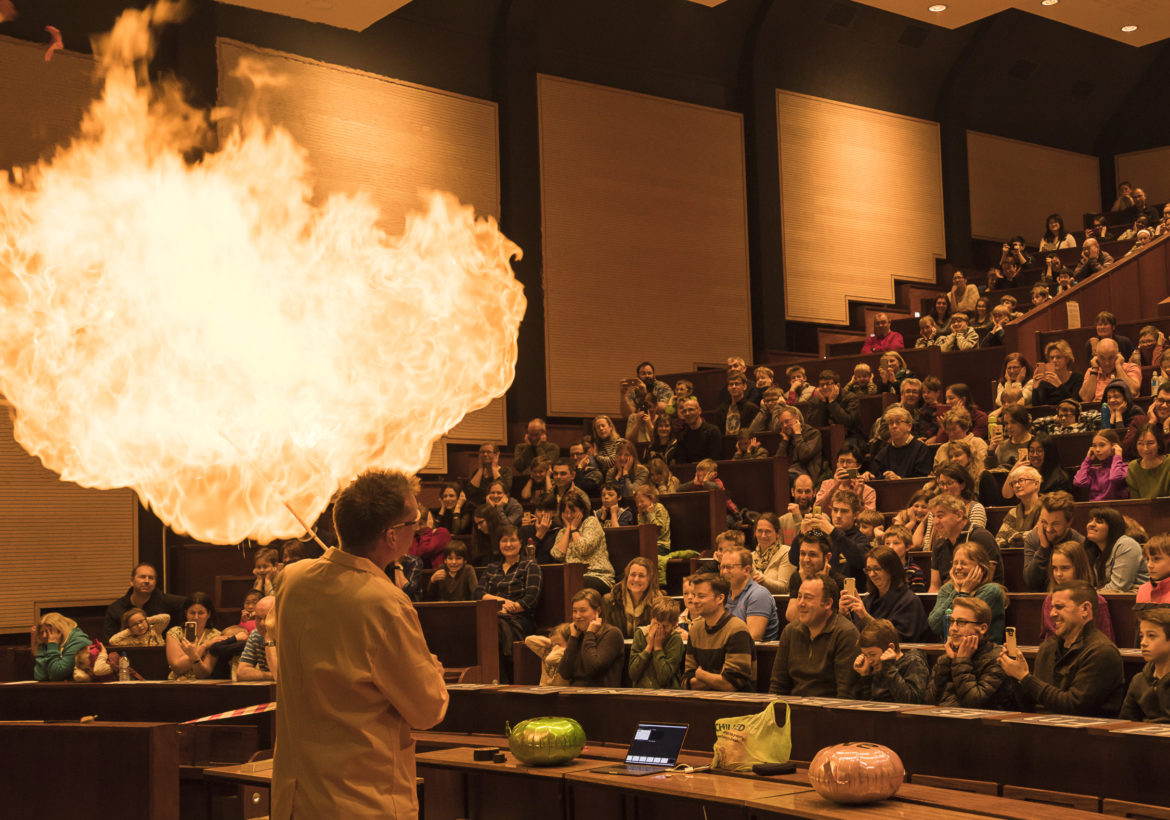From the 9 to 22 March, the Cambridge Science Festival is hosting nearly 400 events at venues across the city. Now in its 26th year, the festival’s 2020 programme explores the theme of vision, touching on topics from artificial intelligence to the climate crisis, with films, fun science quiz events, comedy and theatre.
As always, there are a wide variety of talks and debates on offer, presented by some of the world’s greatest scientists. They will examine our past and suggest a vision for the future, revealing how science can help us understand and solve the greatest challenges of our time. Some of the festival’s distinguished speakers include Professor Dame Athene Donald, former chief medical officer Professor Dame Sally Davies, BBC presenter Dr Adam Rutherford, Baroness Bryony Worthington and neuroscientist Professor Barbara Sahakian.
Highlights from the first week include ExoMars Rover: engineering for the red planet on 9 March, in which Abbie Hutty – the Rover’s platform delivery manager – discusses the aims and objectives of Europe’s first Rover mission to Mars. There’s also From policing to fashion: how the use of artificial intelligence is shaping our work on 10 March. Hear about the social and psychological implications of artificial intelligence, from predictive policing to its role in reshaping the fashion design process. On 12 March, you can learn all about organoids in Mini-organs in a dish: how organoids are revolutionising research, which explains how miniature organs are grown and discusses why this new technology is so important for biomedical research.
The first weekend of the festival features an impressive array of events for families. Dr Peter Wothers, from the University of Cambridge’s Department of Chemistry, is back with another of his much-loved action-packed talks, this time charting the elements involved in mankind’s mission to light his way. There are also hands-on demonstrations with Microsoft HoloLens, talks about the fastest animals on Earth and a virtual reality cycle ride.
In the second week you can catch a talk called CRISPR technology and the future of genome editing on 16 March, led by CRISPRCas9’s co-discoverer Professor Jennifer Doudna from the University of California, Berkeley. She discusses the implications of this groundbreaking gene-editing tool and the policies around its use in genomics research, or you can learn about the limits to human endurance in The sub 2-hour marathon: What does the future hold? This debate features Dr Dan Gordon, Dr Justin Roberts, Dr Ash Willmott and Dr Francesca Cavallerio of Anglia Ruskin University tackling the physiological, nutritional, technological and psychological components involved in this extraordinary achievement, debating where exactly the limits to human endurance may lie.
The second weekend is again aimed at families, with the British Antarctic Survey, the Institute of Astronomy, Wellcome Genome Campus, Cavendish Laboratory and a slew of other museums and university departments opening their doors to the public. Immerse yourself in virtual reality, discover what it takes to be a polar explorer, or find out why robots aren’t taking over the world. There is also a Family Gaming Night at the Centre for Computing History on 20 and 21 March, featuring retro classics like Pac-Man and Space Invaders as well as modern games.
On top of the extensive line-up of talks and debates, there are exhibitions, performances and tours across the city that you can get involved in. Artist Joaquín Fargas has created an engrossing exhibition called The Biosphere Project which sheds light on the issues surrounding the preservation of our planet, and there’s an interactive art installation exploring the Climate Bee-Mergency. On 9 March at Thirsty, see comedy Our Disgusting Planet, starring Belle Taylor and Char Mykura in a frank and filthy performance that normalises the revolting. And you won’t want to miss the Botanic Garden’s Plants Inspiring Technological Innovation trail, which will walk you through the plants that are already solving some of the problems we face today.
Dr Lucinda Spokes, Cambridge Science Festival manager, says: “The programme this year is focused on ‘vision’: where we were, where we are and where we hope to be. Science offers huge possibilities to change the course of our planet for the better. With this year’s programme, we hope to inspire and excite our visitors about these possibilities. As ever, we have endeavoured to tackle some of our greatest challenges through a range of events including talks, debates, performances, comedy, film, tours and exhibitions. We look forward to welcoming and actively engaging with our audiences in March, hearing their views and thoughts about current and future scientific research.”
Cambridge Science Festival runs from 9 to 22 March, with bookings now open. The full festival programme is available to download on the festival’s website, sciencefestival.cam.ac.uk

